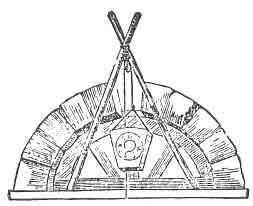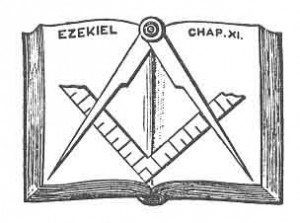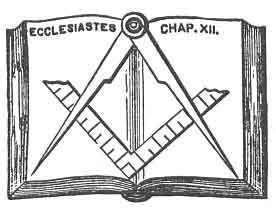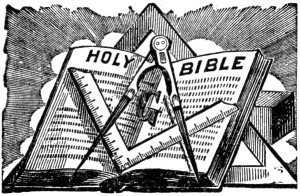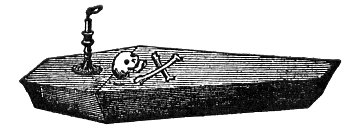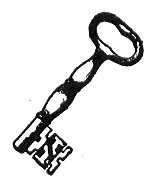The rose of Jericho grows in the sandy deserts of Arabia and on the Syrian housetops. Scarcely six inches high, it loses its leaves after the flowering season, and dries up into the form of a ball. Then it is uprooted by the winds, and carried, blown, or tossed across the desert, into the sea. There, feeling the contact of the water, it unfolds itself, expands its branches, and expels its seeds from their seed-vessels. These, when saturated with water, are carried by the tide and laid on the seashore. Many are lost, as many individual lives of men are useless. But many are thrown back again from the seashore into the desert, where, by the virtue of the sea-water that they have imbibed, the roots and leaves sprout and they grow into fruitful plants, which will, in their turns, like their ancestors, be whirled into the sea. God will not be less careful to provide for the germination of the truths you may boldly utter forth. “Cast,” He has said, “thy bread upon the waters, and after many days it shall return to thee again.”
Initiation does not change: we find it again and again, and always the same, through all the ages. The last disciples of Pascalis Martinez are still the children of Orpheus; but they adore the realizer of the antique philosophy, the Incarnate Word of the Christians.
Pythagoras, the great divulger of the philosophy of numbers, visited all the sanctuaries of the world. He went into Judæa, where he procured himself to be circumcised, that he might be admitted to the secrets of the Kabalah, which the prophets Ezekiel and Daniel, not without some reservations, communicated to him. Then, not without some difficulty, he succeeded in being admitted to the Egyptian initiation, upon the recommendation of King Amasis. The power of his genius supplied the deficiencies of the imperfect communications of the Hierophants, and he himself became a Master and a Revealer,
p. 97
Pythagoras defined God: a Living and Absolute Verity clothed with Light.
He said that the Word was Number manifested by Form.
He made all descend from the Tetractys, that is to say, from the Quaternary.
God, he said again, is the Supreme Music, the nature of which is Harmony.
Pythagoras gave the magistrates of Crotona this great religious, political and social precept:
“There is no evil that is not preferable to Anarchy.”
Pythagoras said, “Even as there are three divine notions and three intelligible regions, so there is a triple word, for the Hierarchical Order always manifests itself by threes. There are the word simple, the word hieroglyphical, and the word symbolic: in other terms, there are the word that expresses, the word that conceals, and the word that signifies; the whole hieratic intelligence is in the perfect knowledge of these three degrees.”
Pythagoras enveloped doctrine with symbols, but carefully eschewed personifications and images, which, he thought, sooner or later produced idolatry.
The Holy Kabalah, or tradition of the children of Seth, was carried from Chaldæa by Abraham, taught to the Egyptian priesthood by Joseph, recovered and purified by Moses, concealed under symbols in the Bible, revealed by the Saviour to Saint John, and contained, entire, under hieratic figures analogous to those of all antiquity, in the Apocalypse of that Apostle.
The Kabalists consider God as the Intelligent, Animated, Living Infinite. He is not, for them, either the aggregate of existences, or existence in the abstract, or a being philosophically definable. He is in all, distinct from all, and greater than all. His name even is ineffable; and yet this name only expresses the human ideal of His divinity. What God is in Himself, it is not given to man to comprehend.
God is the absolute of Faith; but the absolute of Reason is BEING, ו ?Y?H?W?H. “I am that I am,” is a wretched translation.
Being, Existence, is by itself, and because it Is. The reason of Being, is Being itself. We may inquire, “Why does something exist?” that is, “Why does such or such a thing exist?” But we cannot, without being absurd, ask, “Why Is Being?” That would be to suppose Being before Being. If Being had a

Moe is the founder of GnosticWarrior.com. He is a father, husband, author, martial arts black belt, and an expert in Gnosticism, the occult, and esotericism.


